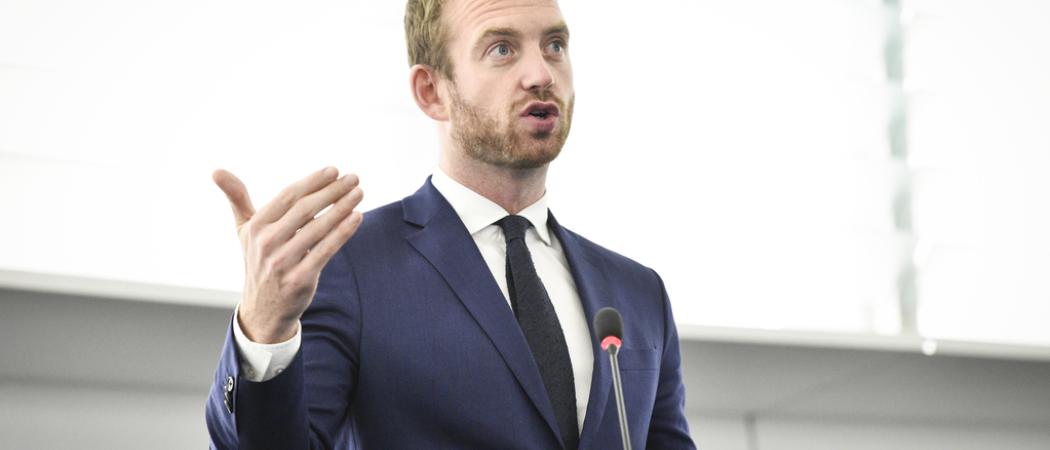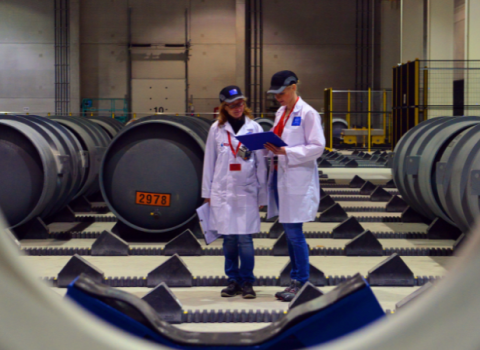Half of the funding in the next EU research programme should be dedicated to combatting climate change, says Jakop Dalunde, Swedish green MEP and shadow rapporteur

Green MEP Jakop Dalunde. Photo: European Parliament.
Half of projects funded in the EU’s €94.1 billion Horizon Europe research programme should in some way aim to combat climate change, says Jakop Dalunde, Swedish Green MEP, calling on the EU to do more to spur businesses and universities to meet the Paris climate accord goals.
“The climate target set down by the European Commission in Horizon Europe is 35 per cent – we want to see that go up to 50 per cent,” Dalunde, a shadow rapporteur on the programme for the European Parliament, told Science|Business.
The research funding could go to clean energy or energy efficiency, while universities and businesses pitching for EU grants should demonstrate how they take climate change into account in their normal operations.
Dalunde is critical of past underinvestment, with the current Horizon 2020 programme having allocated some 24 per cent of its spending to climate action, according to a report in 2016 by the European Court of Auditors, the EU financial watchdog. Its target was 35 per cent.
In the rapidly closing window of opportunity to avoid catastrophic global warming, “We need to follow up on our targets better, and realise better impact from our funding,” Dalunde said, noting current progress in cutting emissions is not enough to meet the Paris goal. “We need to stop labelling something as climate action if it’s not climate action,” he said.
Following escalating warnings from the Intergovernmental Panel on Climate Change, including a recent report that described a strong risk of crisis as early as 2040, the message on climate is finally getting the attention of leaders everywhere, the MEP said.
“I’m seeing a shift – especially when people realise you can gain jobs from climate action rather than lose them,” he said. “Almost every major European company now realises they need to increase spending in green R&D. They know it’s necessary to support their competitiveness going forward.”
Dalunde suggests setting a research ‘moonshot’ to build a new electric car in Europe. The industry is lagging the rest of the world, he said. “The future is electric. But only two of the top 10 car electric cars producers in the world are European.” Germany’s BMW and France’s Renault make top-selling electric cars, but lag those made in the US, China and Japan.
At present Dalunde is in the thick of negotiating with MEPs to finalise amendments to the Commission’s Horizon Europe proposal before a vote in November. His group want any outside country looking to access Horizon Europe to have signed the Paris accord.
Promote excellence
A number of draft amendments indicate a divide between MEPs who want measures in Horizon Europe to help bridge the west to east gap in research and those who are concerned such a move would undermine the principle of awarding grants solely on the basis of excellence.
Dalunde says he doesn’t want the programme to prioritise a more even spread of money around Europe. “Even though I agree there’s a problem in Europe with research performance, not every tool we have can help fix it,” he said. “The main purpose of the research programme is to promote excellence. I would encourage [poorer] member states to look to cohesion funding, and increase investment in science at home.”
Make polluters pay
On another area of disagreement, Dalunde said he would happily see the research budget increase to €120 billion. However, governments will need to come on board if there is any chance of reaching this figure, and Sweden, for one, wants the EU to find new resources to grow its budget, rather than coming to member states looking for more money.
One possibility for Brussels to raise more money is through reforming the EU emissions trading system. The idea of the cap-and-trade scheme is simple, if hard to enforce: cap the emissions from carbon-heavy industries like oil and gas, energy and transportation, and make them pay to pollute.
“It’s a nice idea to have the polluters of the past paying for the green technologies of the future,” Dalunde said.





 A unique international forum for public research organisations and companies to connect their external engagement with strategic interests around their R&D system.
A unique international forum for public research organisations and companies to connect their external engagement with strategic interests around their R&D system.